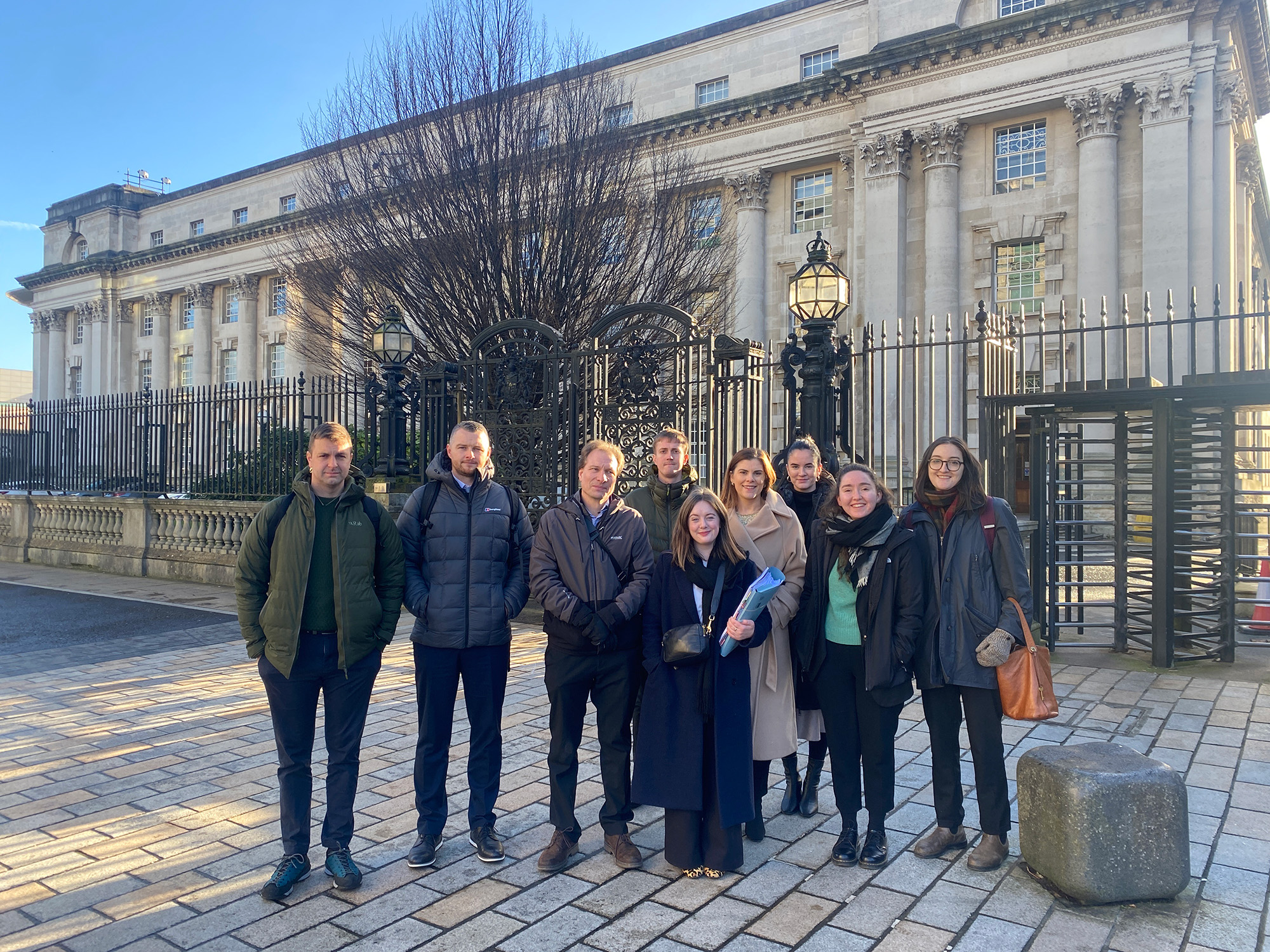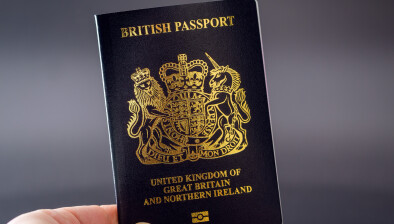Irish language returns to Belfast courtroom for first time in 300 years

Pictured: Conradh na Gaeilge with CAJ, PILS and community witnesses outside the Royal Courts of Justice in Belfast.
The Irish language was spoken during legal proceedings in Belfast’s Royal Courts of Justice yesterday in what language experts say was the first time in nearly 300 years.
The First-tier Tribunal (Information Rights) was hearing an appeal brought by Conradh na Gaeilge against a decision by the Information Commissioner upholding a decision by Belfast City Council not to disclose legal advice which played a crucial role in a bilingual signage row.
Conradh na Gaeilge and several witnesses from the Irish language community introduced themselves to the tribunal in Irish.
It is believed to be the first time witnesses have officially used Irish in courts in Belfast since it was banned under the Administration of Justice (Language) Act (Ireland) 1737.
The Identity and Language (Northern Ireland) Act 2022 provides for the repeal of the ban, but it has not yet been commenced by the Northern Ireland secretary.
Speaking afterwards, Cuisle Nic Liam, language rights co-ordinator with Conradh na Gaeilge, said: “This legal opinion seriously impacts a community, and, by refusing to release that information, Belfast City Council have precluded the public from seeing the criteria and rationale by which a decision was ultimately taken to reject bilingual signage.
“We believe, given the ongoing consultation into this issue, and the broader debate around language rights, that legal determination directing council policy should be transparent and open to scrutiny and challenge.
“We hope, through this tribunal, that we can return to a culture of openness and transparency, and that future legal determinations sought, and paid for by the Council with rate-payers’ money, are made readily available to communities and citizens across the board.”
Conradh na Gaeilge has been supported by The PILS Project and represented by the Committee on the Administration of Justice (CAJ) in taking the case.










